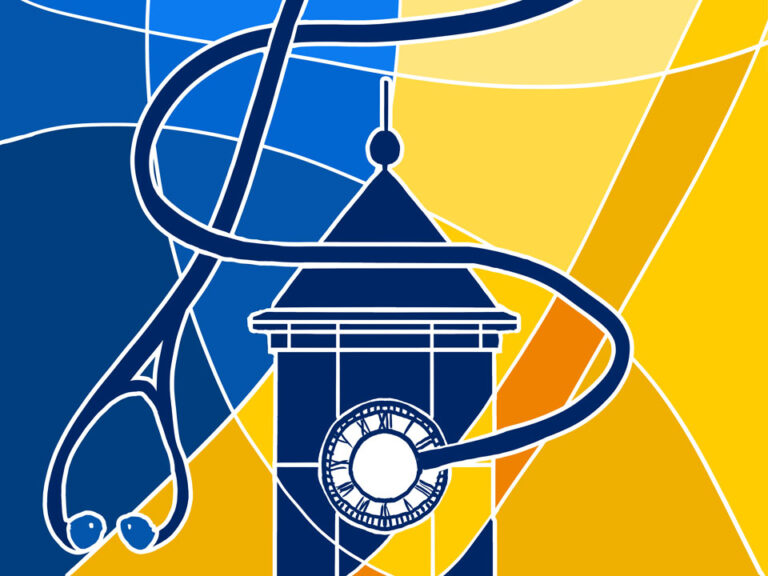It took Narjust Duma a long time to feel like she belonged in medicine in the U.S. Here is her story.
In residency, she remembers targeted microaggressions about her colorful shoes, being called “so Latina,” and being described as overly enthusiastic. A colleague of hers, a certain Valerie from Connecticut, wasn’t subjected to such comments, Duma said.
Duma spoke during the June 5 ASCO Voices Session at the American Society of Clinical Oncology 2021 virtual annual meeting.


“All those comments led to feelings of isolation, and soon I felt like an outsider,” said Duma, assistant professor and thoracic oncologist in the Division of Hematology, Medical Oncology and Palliative Care at University of Wisconsin Carbone Cancer Center. “I felt like I should be more like Valerie in order to fit in. As the months passed, I kept pieces of my personality hidden just with the hope that I could get the respect of my colleagues.”
“I refrained from sharing my personal stories, as they were different compared to my classmates. We did not have the same experiences,” she said. “I grew up in a developing country—we had a struggling economy and a more challenging political situation.”
Slowly, Duma watched her wardrobe change from bright colors to gray, blue, and black—“because that was more professional,” she said. “All these efforts trying to fit in led to depression and an overwhelming sense of not belonging.”
One day, during her fellowship in oncology, she decided to drop the act.
“I woke up and I realized it was time to be myself, Narjust from Venezuela,” she said. “I understood that I brought something important to the table—my unique understanding of the challenges faced by Hispanic trainees and patients, my advocacy skills and my persistence.”
Her realization led her to support other minorities in medicine. She co-founded a Latinas in Medicine group, which includes more than 6,000 members. In 2019, she put together a research group called the Duma Lab, which focuses on discrimination in medical education, gender equity imbalance in medicine, and cancer health disparities.
Now, she’s taking this work to Dana-Farber Cancer Institute and Harvard Medical School, where she was named associate director of the Cancer Care Equity Program effective Aug. 2 (The Cancer Letter, April 2, 2021).
“I was finally free the moment I realized I cannot be anyone else but myself—and a proud Latina in medicine and oncology,” she said. “And to all minority fellows, residents, and medical students—you belong in medicine. Even in those moments in which your identity is tested, you are in the right place, and you’re beautiful the way you are.”
Duma’s June 5 talk follows:
Hello everyone, my name is Dr. Narjust Duma and I’m a medical oncologist at the University of Wisconsin. It is my true honor to share my story with you: “My white coat doesn’t fit.”
There I was, crying once again, from the parking lot of the hospital, all the way to my house, into the shower, and then going to bed—just exhausted. That was the routine pretty much every day for my entering year during residency.
For years I tried hard, every day, to be someone else. Like many of you, my identity was tested to do medical training. I struggled to fit in. It all started small, with comments like, “look at her red shoes,” or how I was so enthusiastic, or comments that I still remember, like, “Oh, you are so Latina.”
All those comments led to feelings of isolation, and soon I felt like an outsider. Despite growing up in a family of physicians—I have spent a good amount of time waiting for my father to be done in the ER, or for my mother to see that one last patient—still, I felt like I did not belong.
I remember one classmate—her name was Valerie and she was from Connecticut. People didn’t comment on her clothing, they didn’t comment on her personality. She was normal. I felt like I should be more like Valerie in order to fit in. As the months passed, I kept pieces of my personality hidden just with the hope that I could get the respect of my colleagues.
I refrained from sharing my personal stories, as they were different compared to my classmates. We did not have the same experiences. I grew up in a developing country—we had a struggling economy and a more challenging political situation.
I remember seeking help from senior residents and attending physicians. My feelings were often minimized or invalidated—residency stuff, and I suppose to “man up.” A few then suggested that I should change my personality in order to fit this box—what residency was, and what medicine is supposed to be.
I slowly saw how clothes, or different colors of my closet changed to gray, blue, and black, because that was more professional. All these efforts trying to fit in led to depression and an overwhelming sense of not belonging.
A few months later, I was on antidepressants, but the crying in the shower continued. Rotation by rotation, I looked for a specialty that would make me feel like I belong, and I found that in oncology. My research ideas were embraced. I got to travel, present my findings, and get a few awards on the way. From the outside, it looked like I was striving. I was what they called a rising star. But in reality I was depressed and trying to fit in every day.
This success led me to believe that not being myself was the right thing to do. A year later, I had matched [with] a top oncology program, and I was moving to the Midwest, a new area of the country.
During fellowship I felt in my element talking with my patients. I felt affected by my patients despite having a different skin color and an accent, but outside of the clinic, I still felt isolated.
I was trying to be someone I was not. I was trying to be like Valerie, because she was normal. After two years on antidepressants, my white coat felt like it still didn’t fit. It felt like a costume that I would put on every day just to fulfill the dream of being a doctor.
One day, I remember waking up in the middle of fellowship. I was exhausted and depressed. I had used all my energy trying to be someone I was not. Then I woke up and I realized it was time to be myself, Narjust from Venezuela.
I put on a yellow dress that I hadn’t worn in years, and finally felt comfortable being my true self. I understood that I brought something important to the table—my unique understanding of the challenges faced by Hispanic trainees and patients, my advocacy skills and my persistence.
This self-discovered route led to awards and publications, and I realized that my calling was to support others in situations similar to mine.
Secondary to that, we founded a Latinas in Medicine group, now composed of over 6,000 members. I co-founded this group with two close friends. In addition, in 2019, we put together a research group called the Duma Lab.
We focused on discrimination in medical education, gender equity imbalance in medicine, and cancer health disparities.
The majority of the members of these groups are women of color who are thriving. The face of medicine is changing. And we’re here to demonstrate the strength, our experiences. We are here to field the change that medical education needs.
I was finally free the moment I realized I cannot be anyone else but myself—and a proud Latina in medicine and oncology.
And to all minority fellows, residents, and medical students—you belong in medicine. Even in those moments in which your identity is tested, you are in the right place, and you’re beautiful the way you are.
And also, remember that someone is looking at you, and you are the role model to someone.











